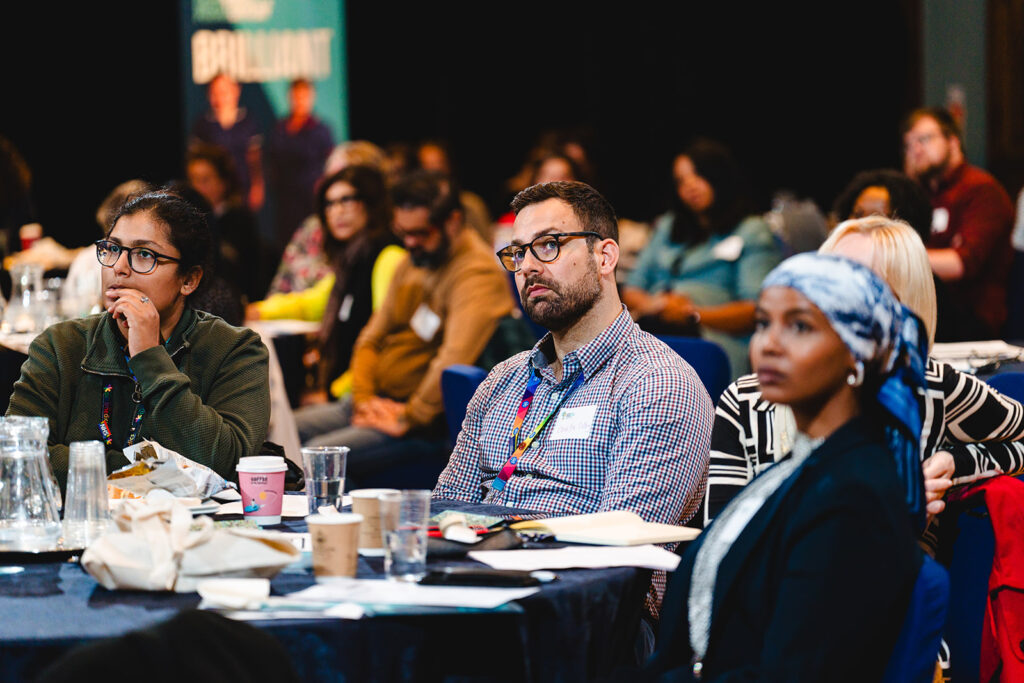FNF’s Director of Academy, Dr Natasha North, was a panelist on our recent webinar bringing partners, members and alumni together to reflect on the State of the World’s Nursing Report (SOWN) 2025, and what it means for all our work. Natasha has been a Registered Nurse for more than 30 years, working in the UK, Africa, and around the world. In this blog, she reflects on the webinar presentations and discussions, and stresses the need for further investment in nursing leadership in order to see real change.
On 18 September, the Florence Nightingale Foundation (FNF) brought together an extraordinary panel of global nursing leaders to discuss the State of the World’s Nursing 2025 report.
Led by Dr Carey McCarthy from WHO, and joined by leaders from the International Council of Nurses (Howard Catton), Europe (FNF Scholar alum Guðlaug Rakel Guðjónsdóttir), and diaspora health partnerships (Dorcas Gwata), the webinar was a reminder of what is possible when our global nursing community comes together.
More than 150 participants joined live, with representation from across the UK as well as from Kenya and Malawi, where FNF’s global partnerships are active. It was a chance to reconnect with colleagues from across our leadership programmes and to reflect together on what the findings mean for our profession. For many, the question that surfaced most strongly from the chat was: ‘what does it mean for us as nurses or midwives working in the UK?’.
What the global picture means for the UK
The report highlights a global shortage of 5.8 million nurses, increasingly concentrated in Africa and the Eastern Mediterranean. At the same time, it shows deepening inequities in nurse distribution, pay, and working conditions. For the UK, three issues stand out:
- Heavy reliance on internationally educated nurses and midwives — currently around 24% of the workforce
- Ethical recruitment and self-sufficiency must go hand in hand: the UK has a responsibility not to exacerbate shortages elsewhere.
- Leadership gaps – preparation is uneven and too few nurses are equipped with the skills and authority to engage in workforce planning.
These challenges directly affect the sustainability of our health systems.


Equipping Nurses and Midwives to Shape Systems
At FNF, we see our role as preparing leaders who can engage with ? workforce data, advocate for change to transform systems. Through our scholarships and leadership programmes, thousands of nurses and midwives have gained the confidence and capability to bring their insights into decision-making, influence and planning.
Our global partnerships extend this work. During the webinar, it was inspiring to see alumni and participants joining from Kenya and Malawi alongside those in the UK. These exchanges are mutual and vital and are not one-way. They demonstrate the bidirectionality of learning and engagement that has got to be the norm in today’s interconnected world.
What Malawi Taught Me About Data and Power
I was reminded of my own early experience in Malawi, where Dr Tulipoka Soko, then the National Director of Nursing and Midwifery Services, mentored me in the power of mastering workforce data. As nurses, when we use data with confidence, insight and precision, we move from being passive recipients of policy to being active shapers of health systems.
That’s the essence of the SOWN 2025 report, and the driving force behind FNF’s work.
The 2030 Test: Are Nurses Shaping Systems?
By the time the next State of the World’s Nursing report is published in 2030, success must be measured not only in nurse numbers, but in whether nurses are leading, developing and improving health systems as well as delivering care.
That will only happen if policymakers and employers invest in leadership pathways — equipping nurses with the skills, authority, and global perspective to engage fully in workforce planning.
FNF is committed to building those pathways. And as this webinar showed, our community – across the UK and globally – has the insight, commitment, and collective power to lead the change.
Let’s make 2030 the year we no longer ask if nurses are shaping systems, and instead celebrate how far their leadership reaches. Join us in advocating for investment in nursing leadership, ethical workforce planning, and global collaboration.
Watch the webinar here
If you are a UK Academy member, or an FNF alumni based in the UK, you can watch the recording of the webinar on your portal. You will need to click the link and then input your password to gain access.
